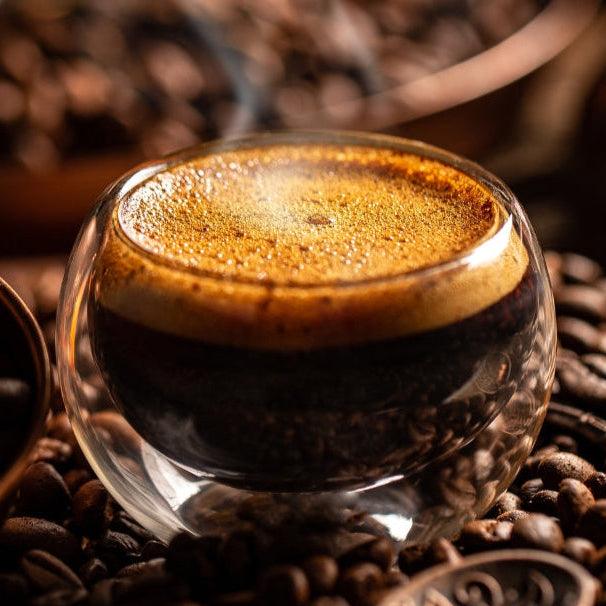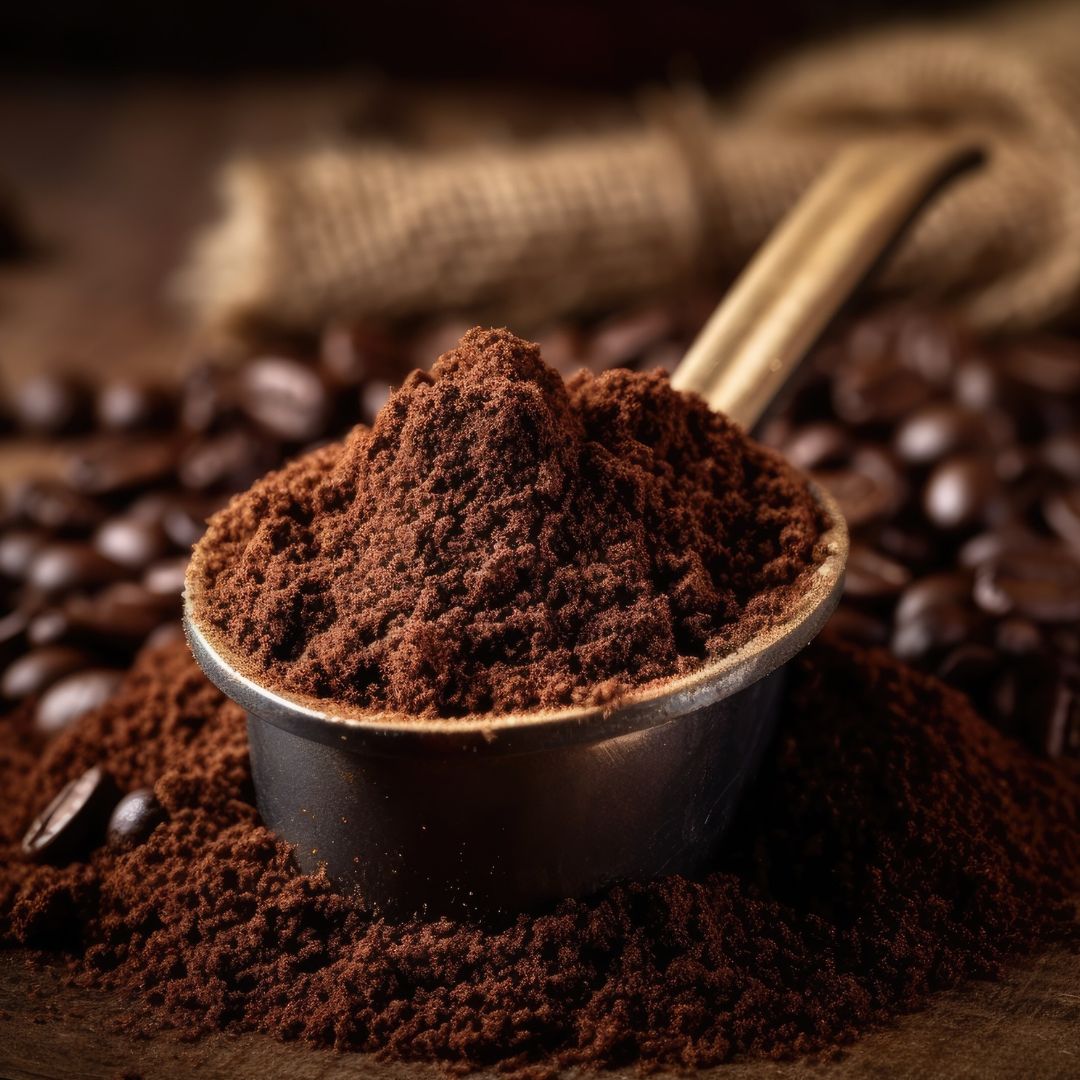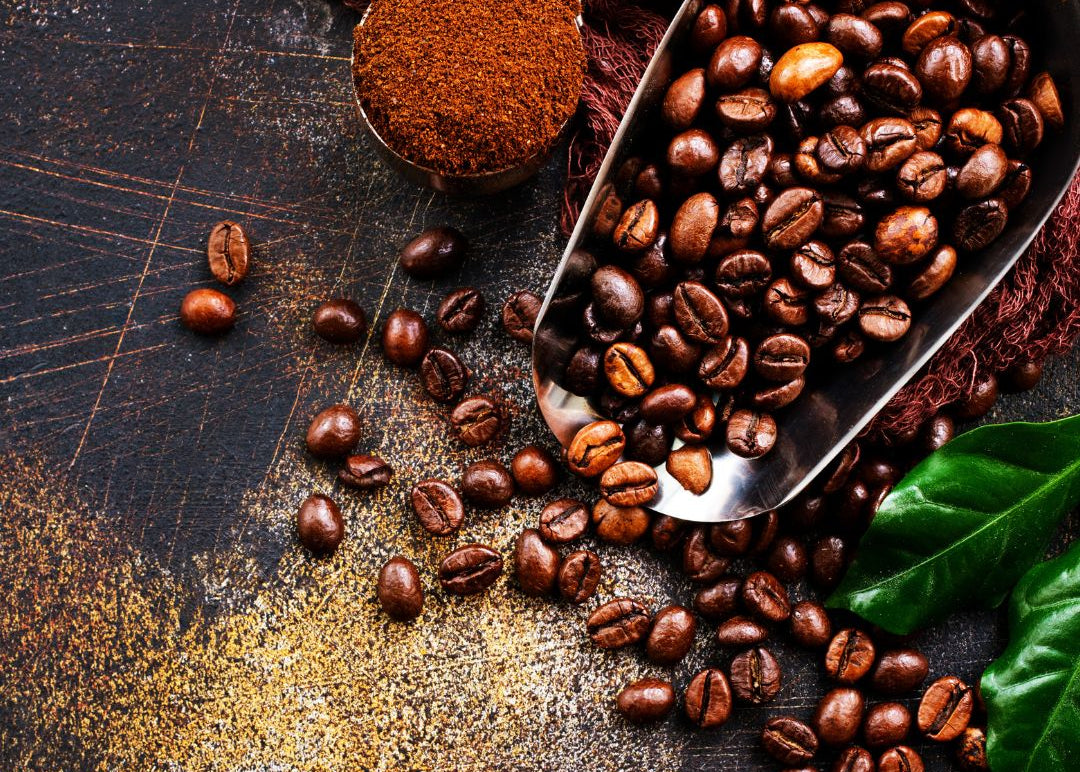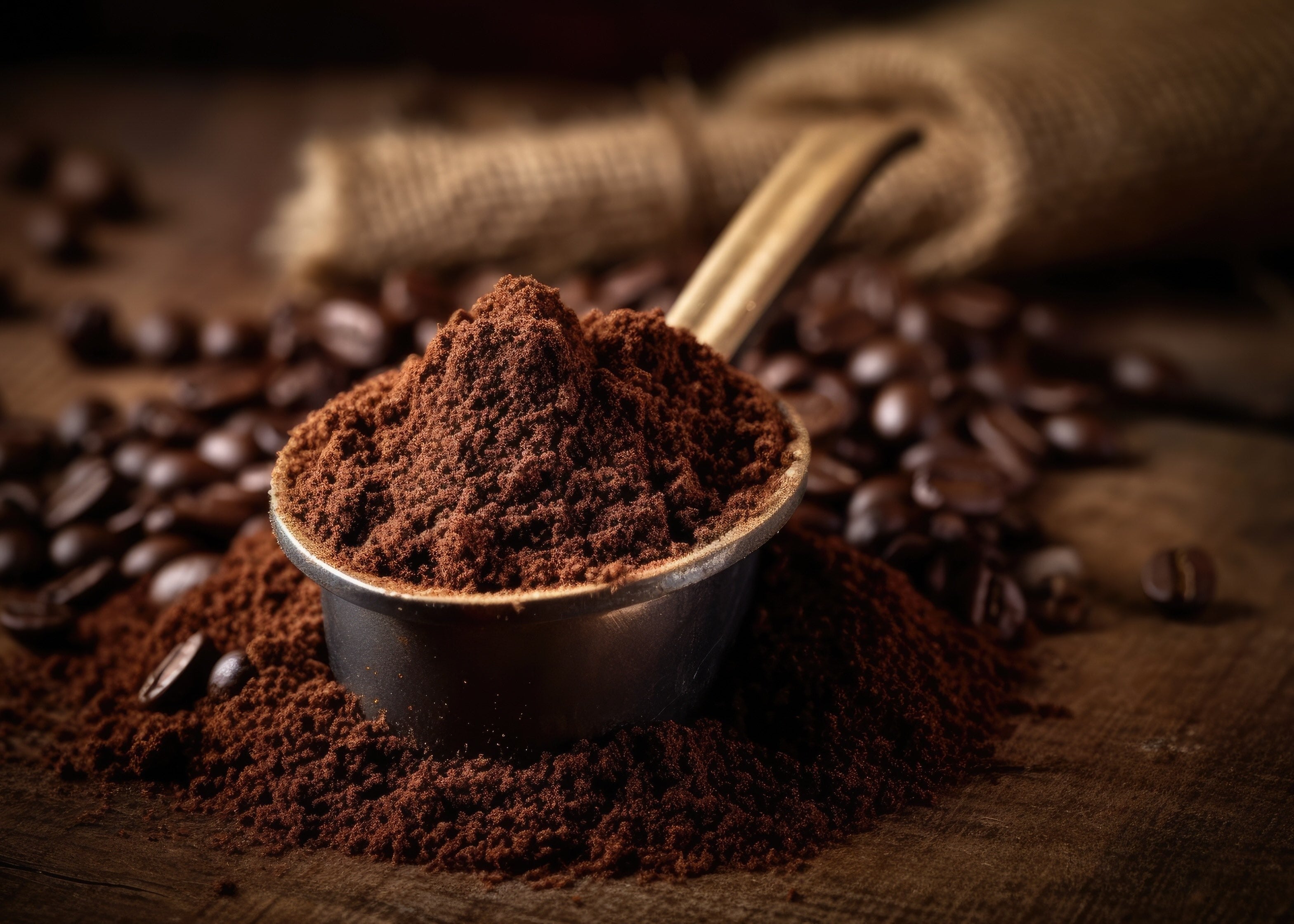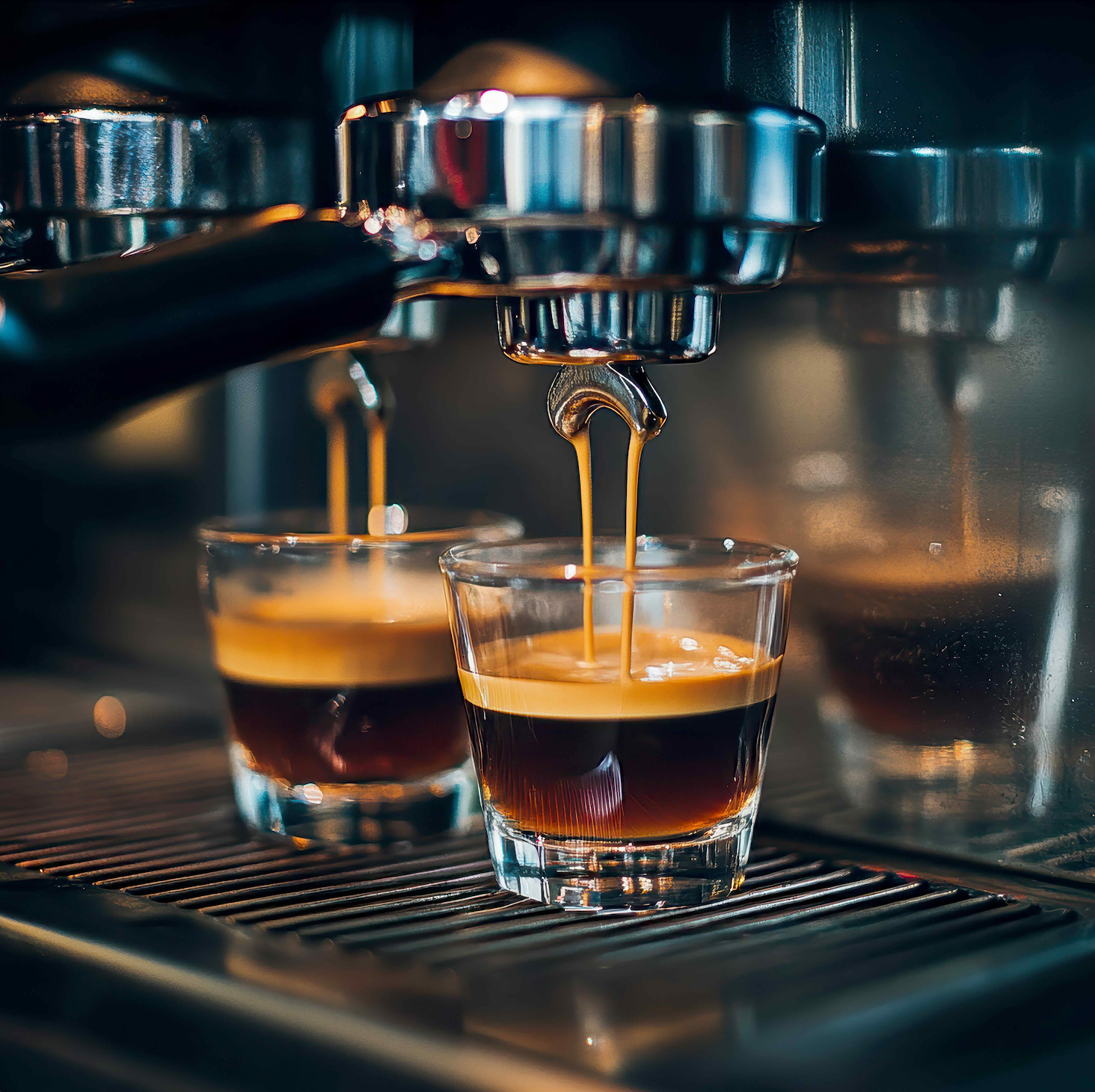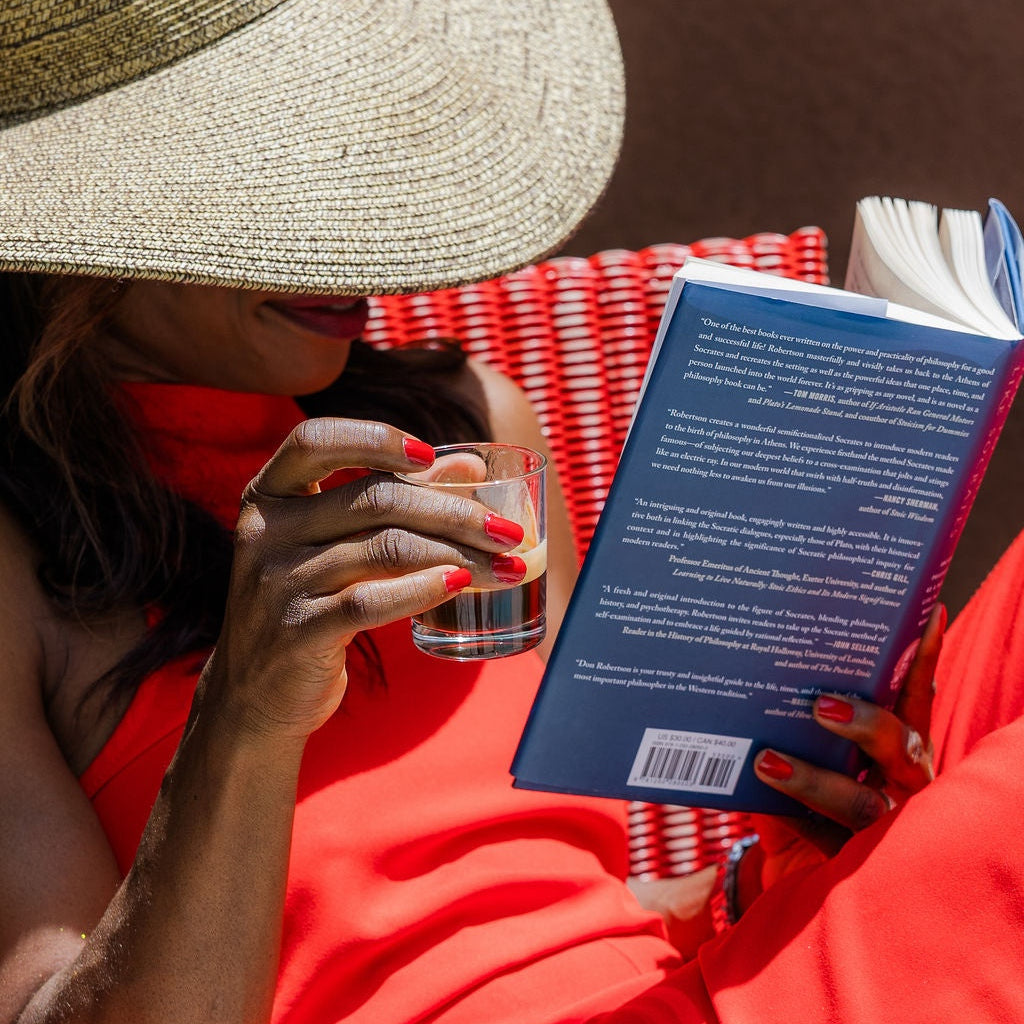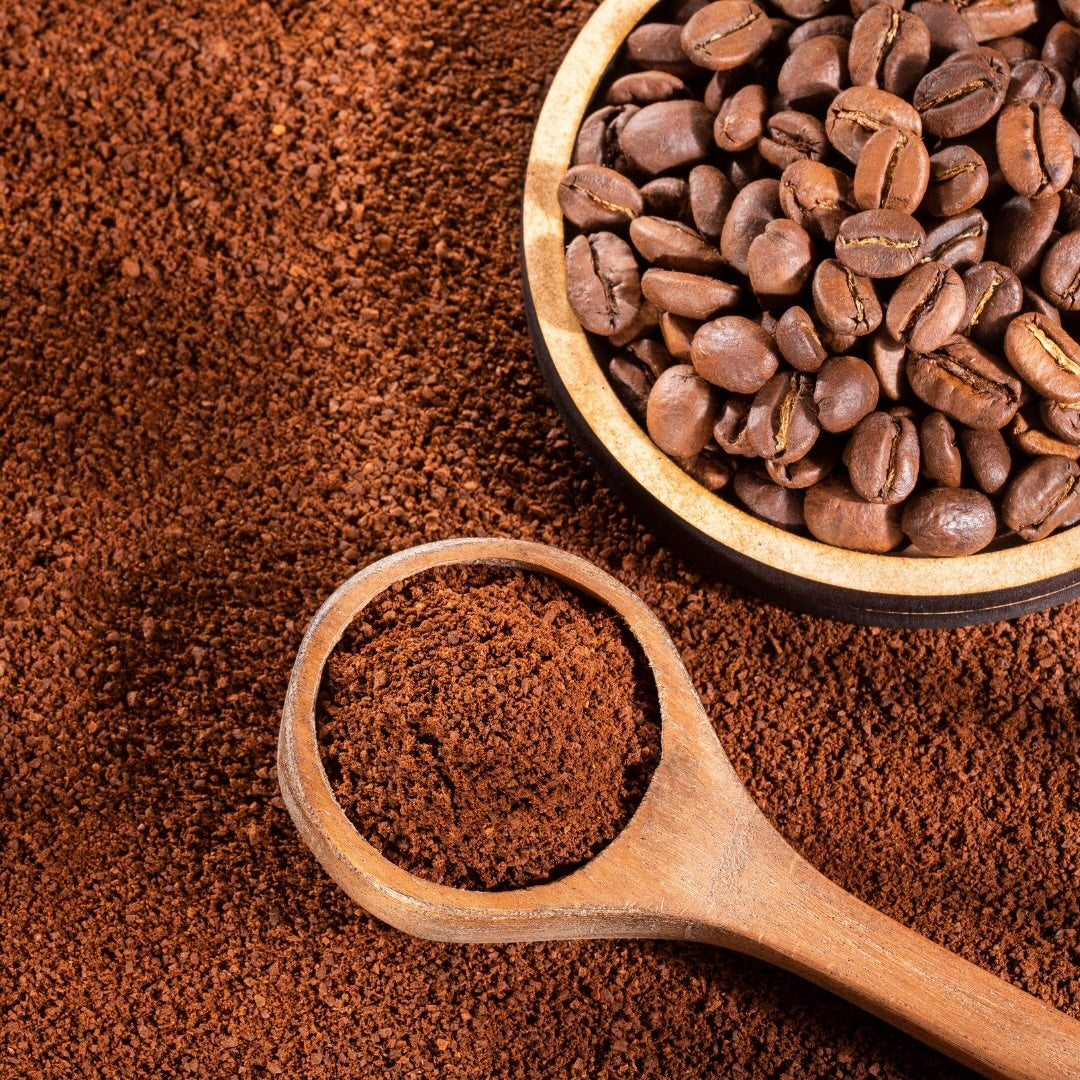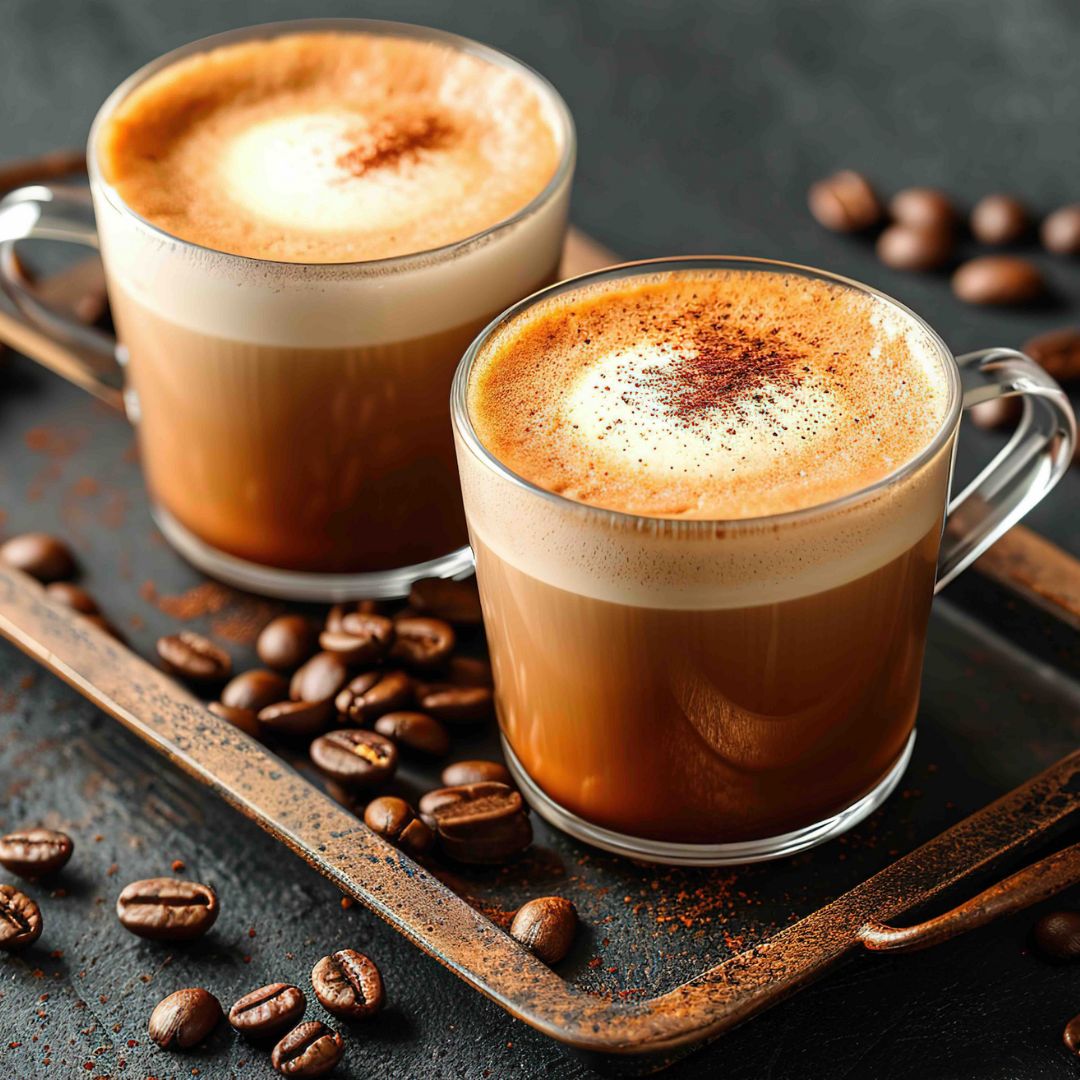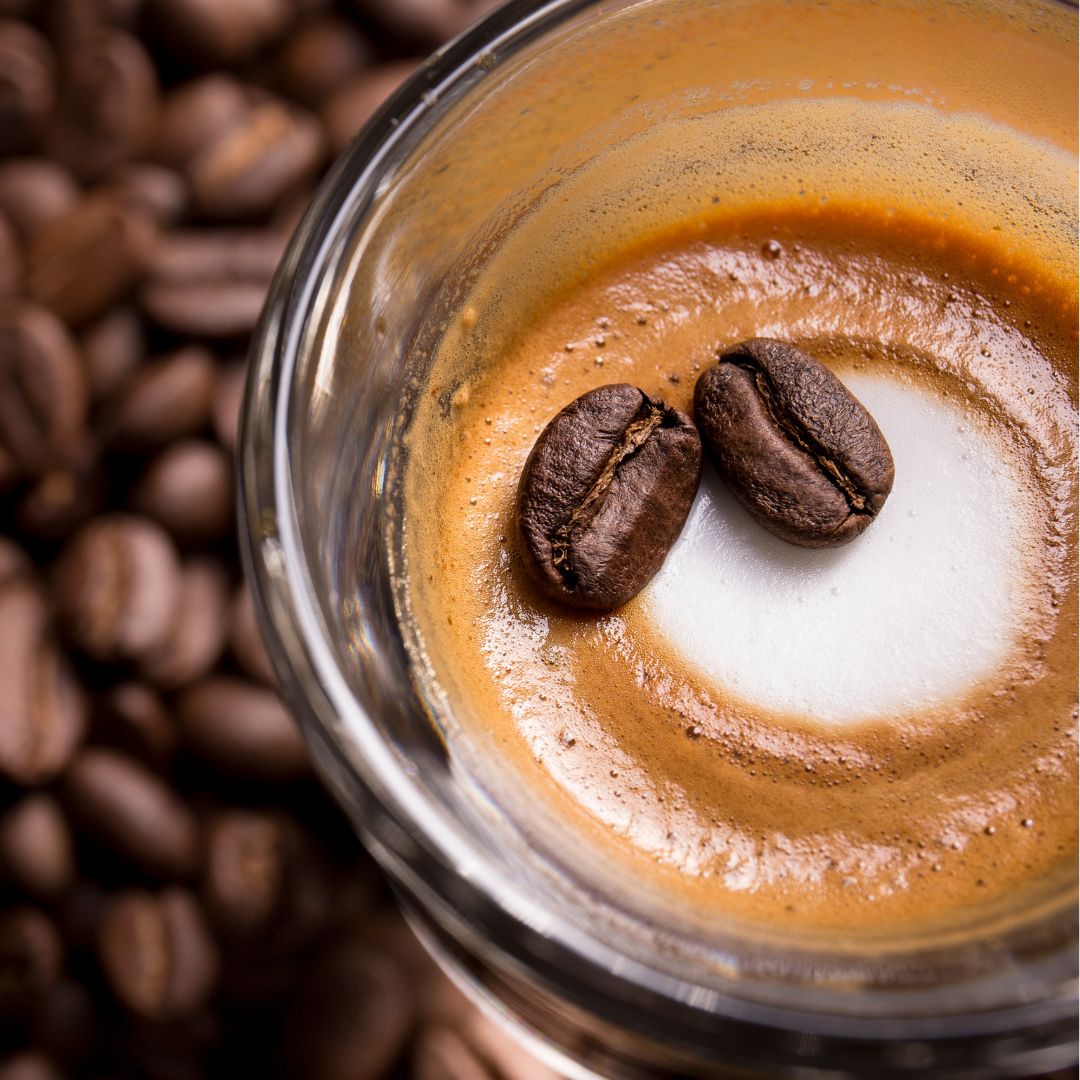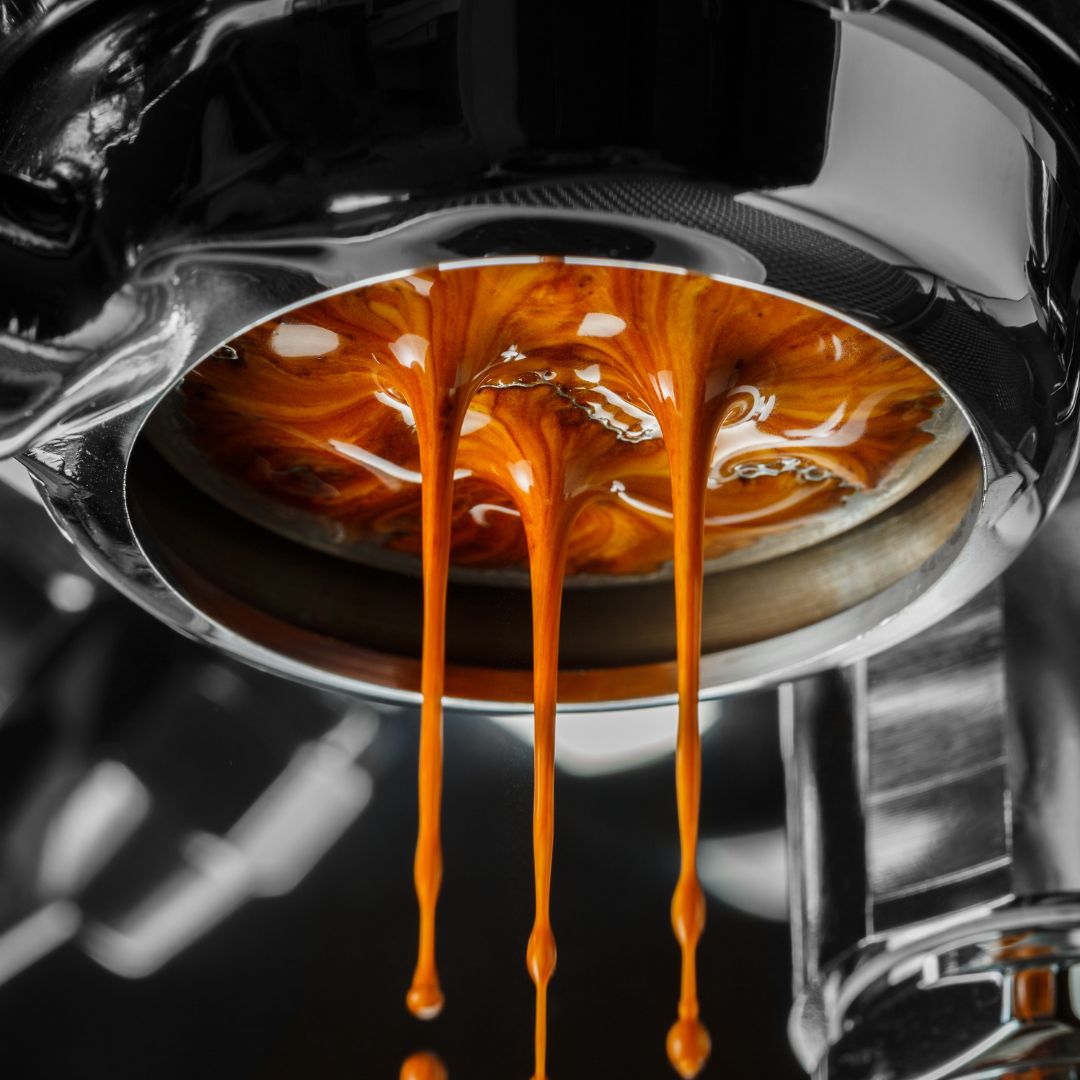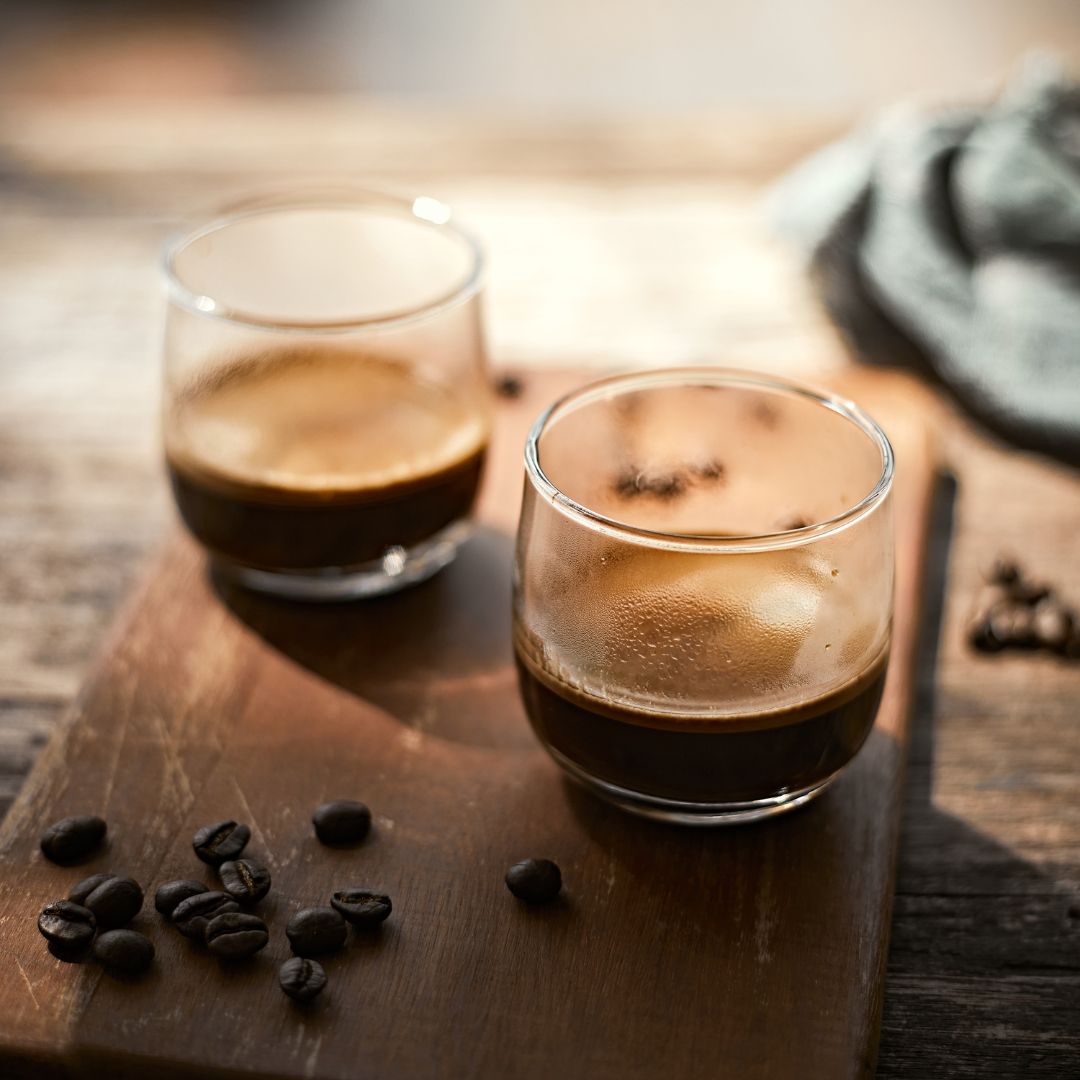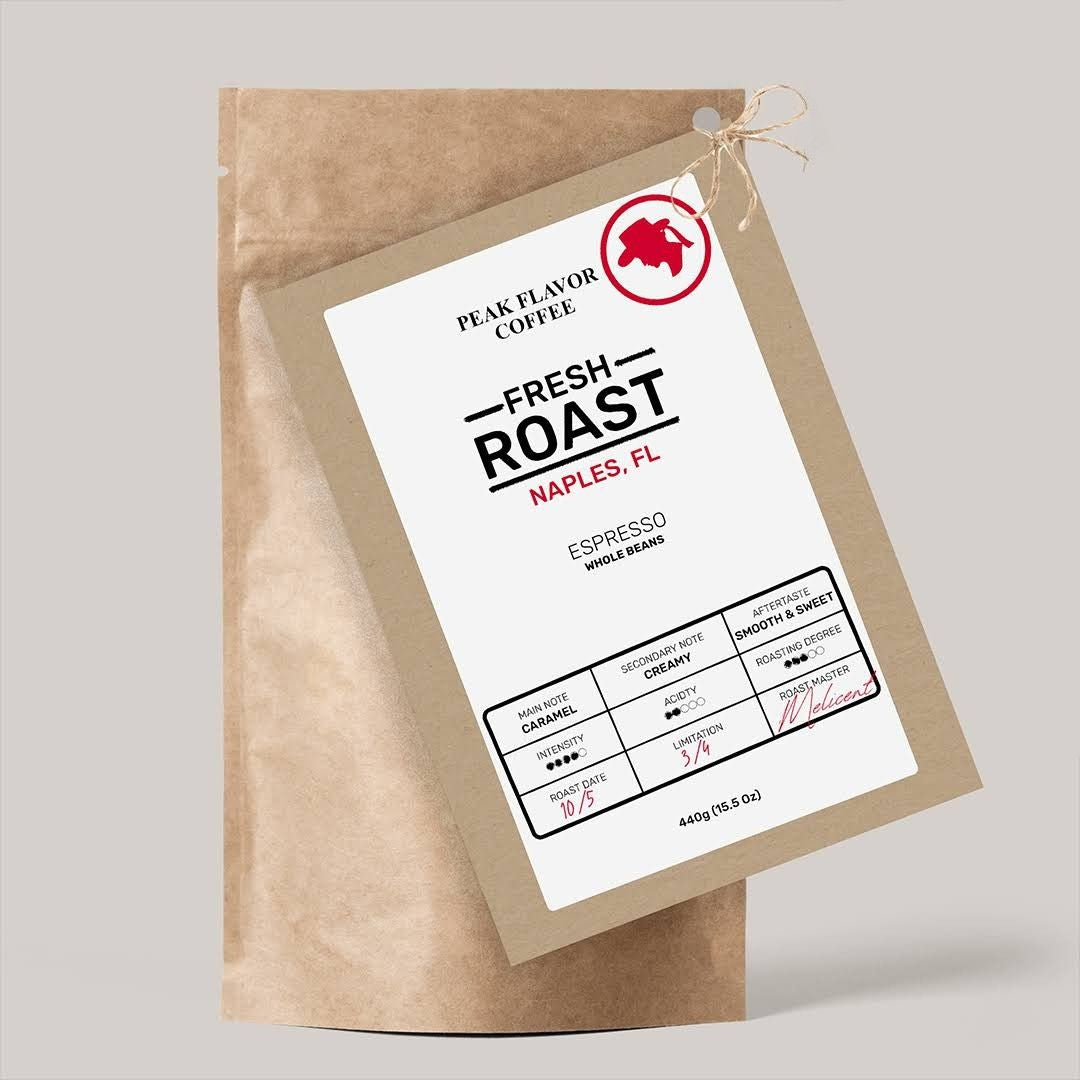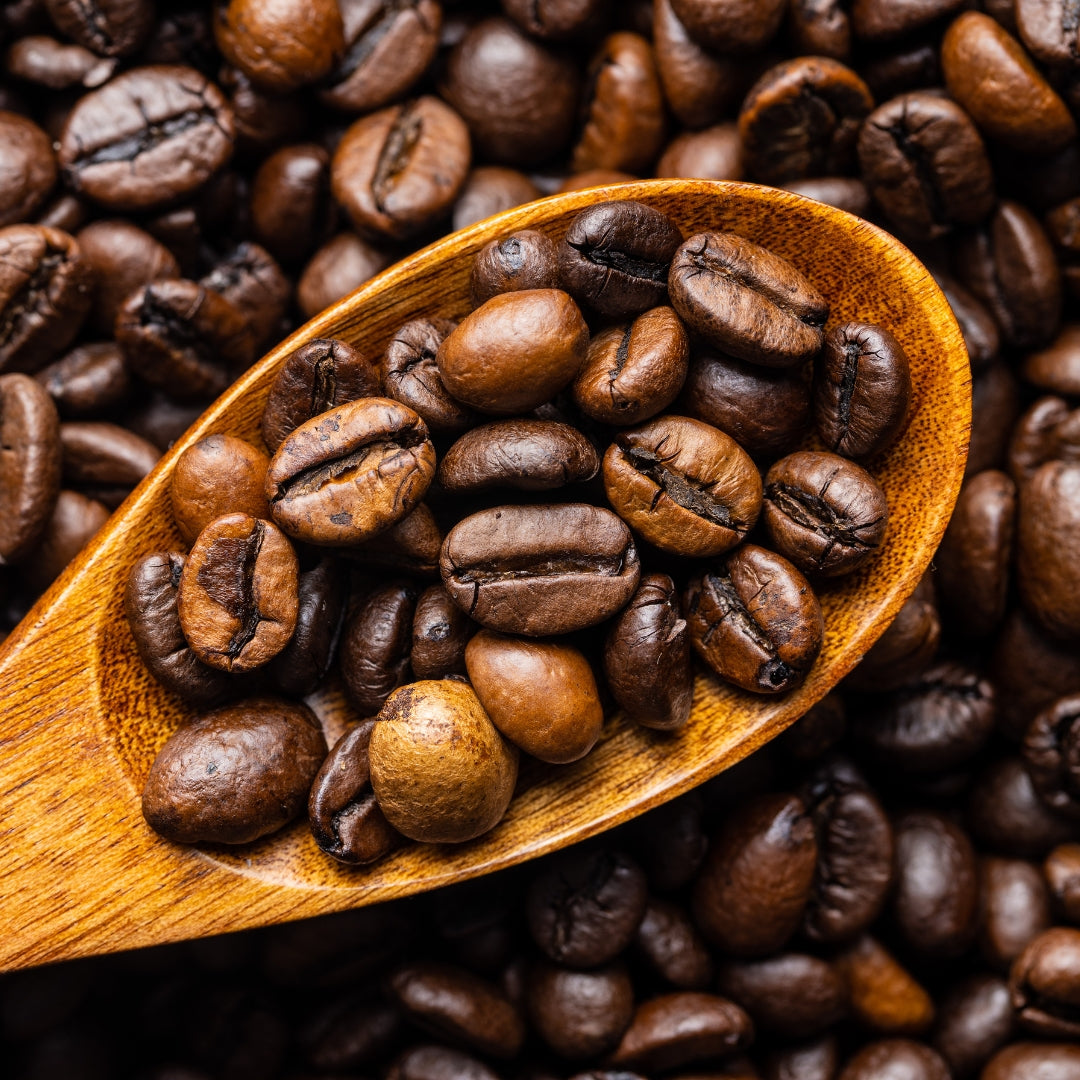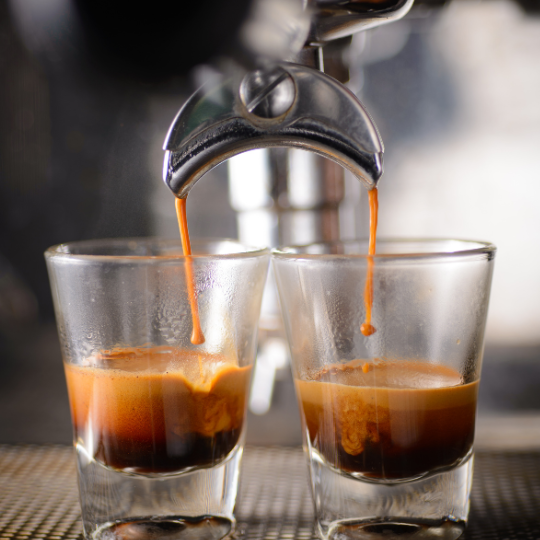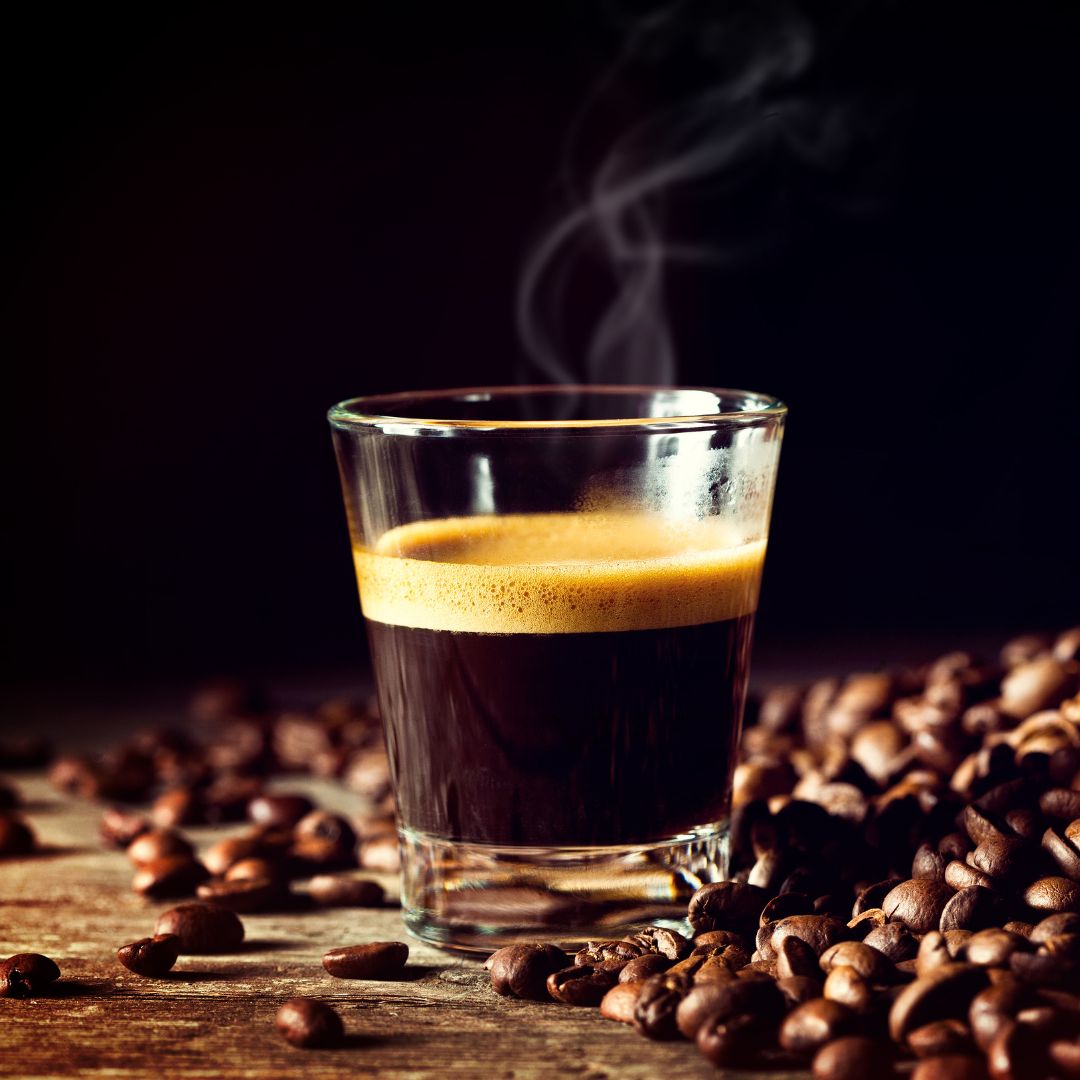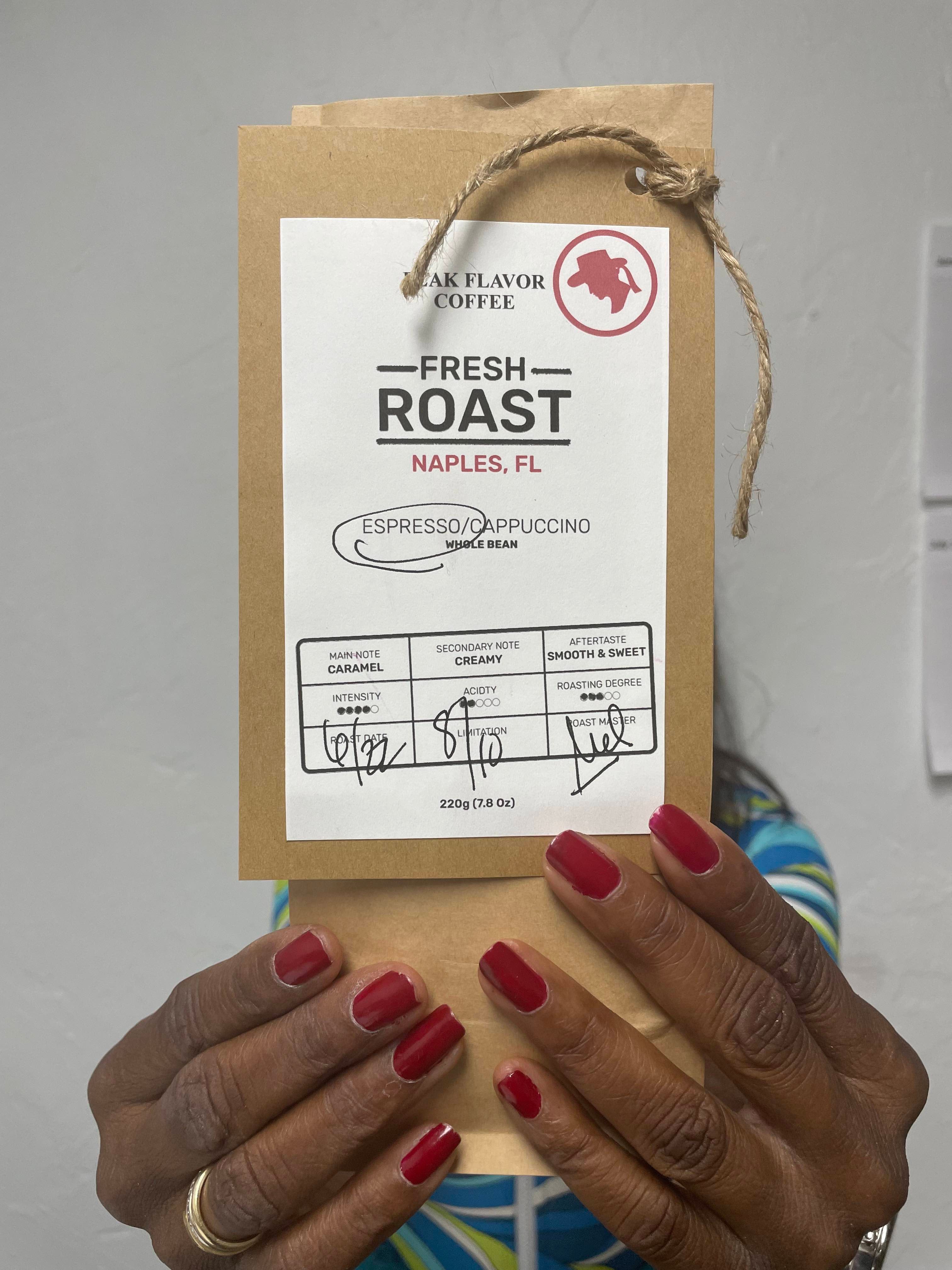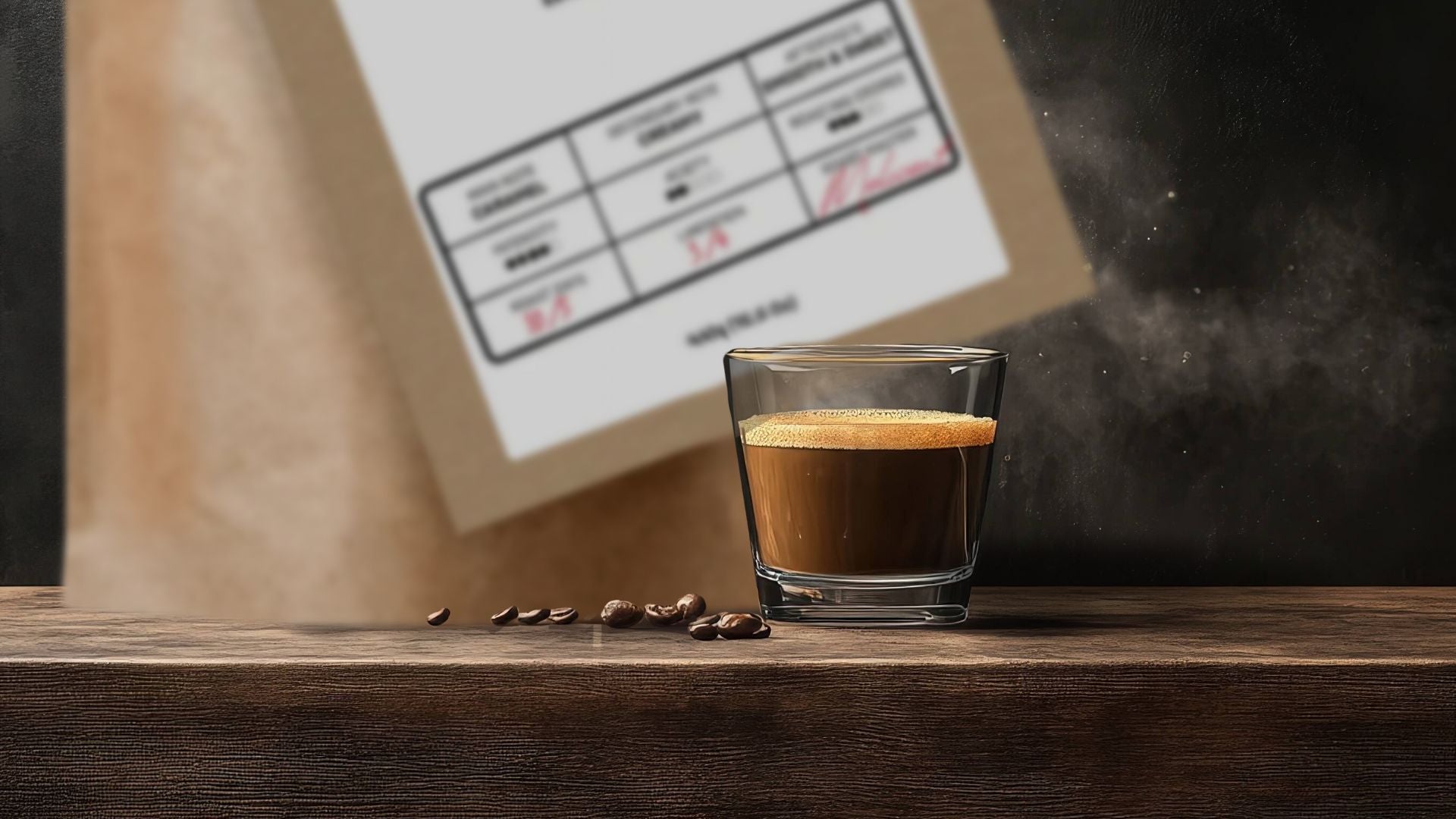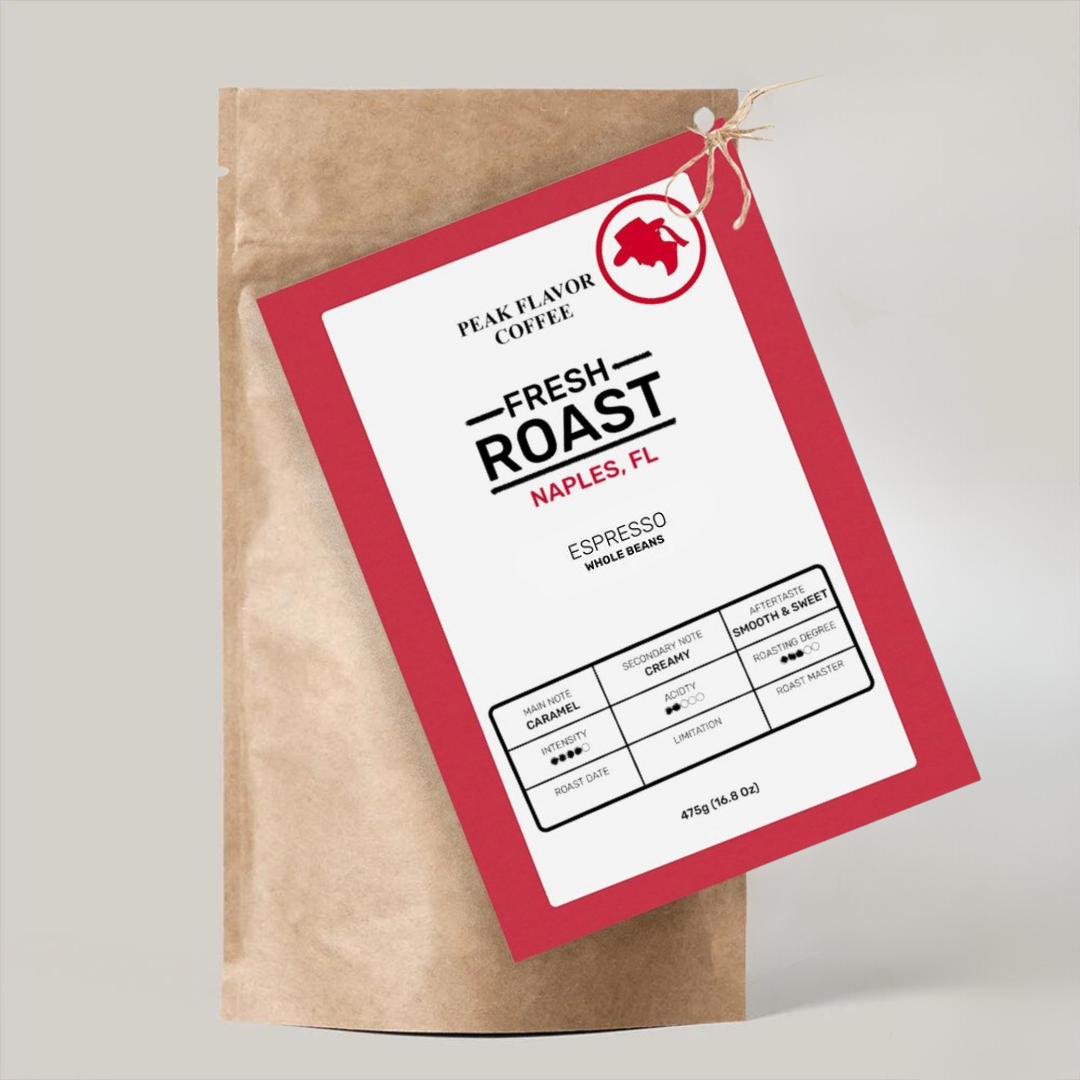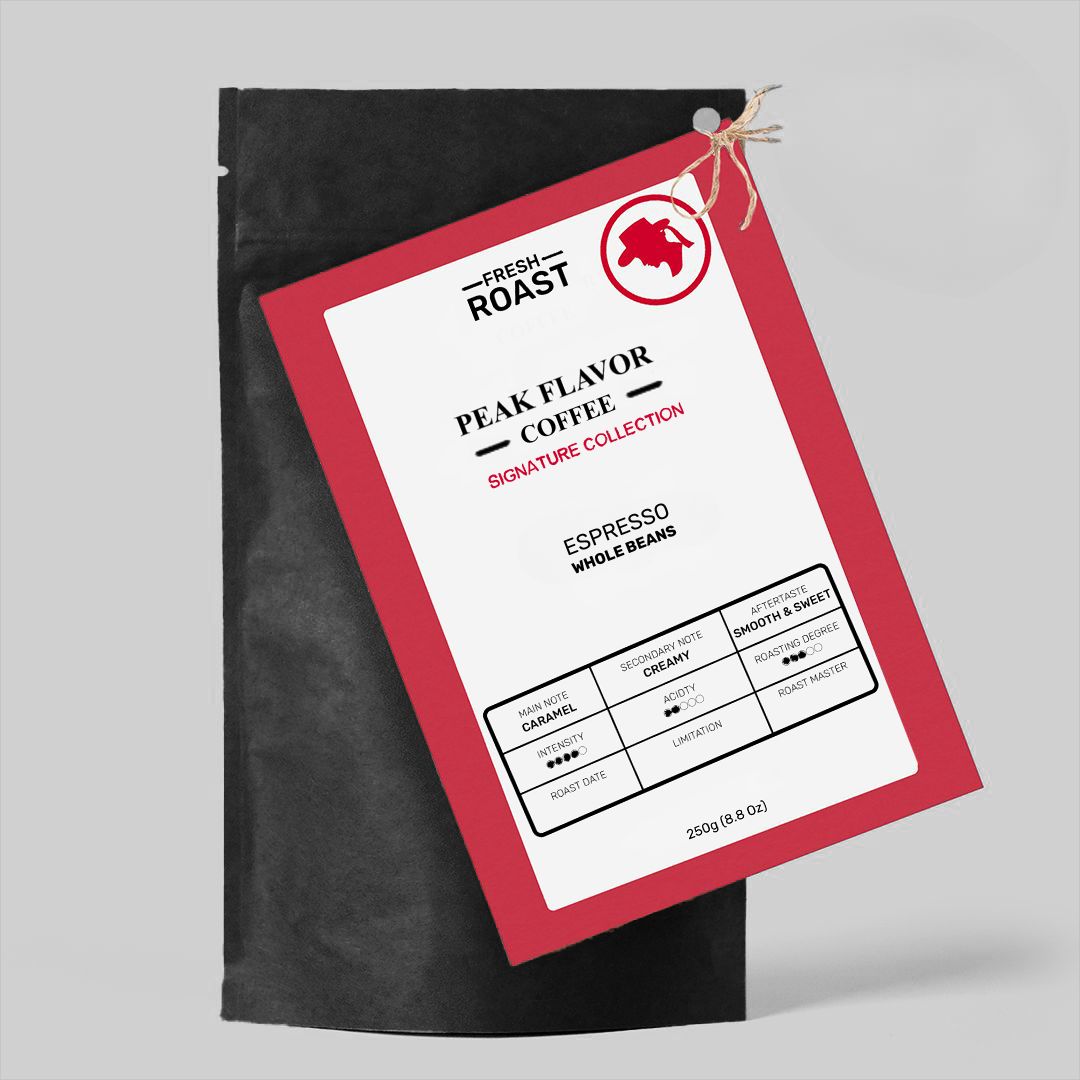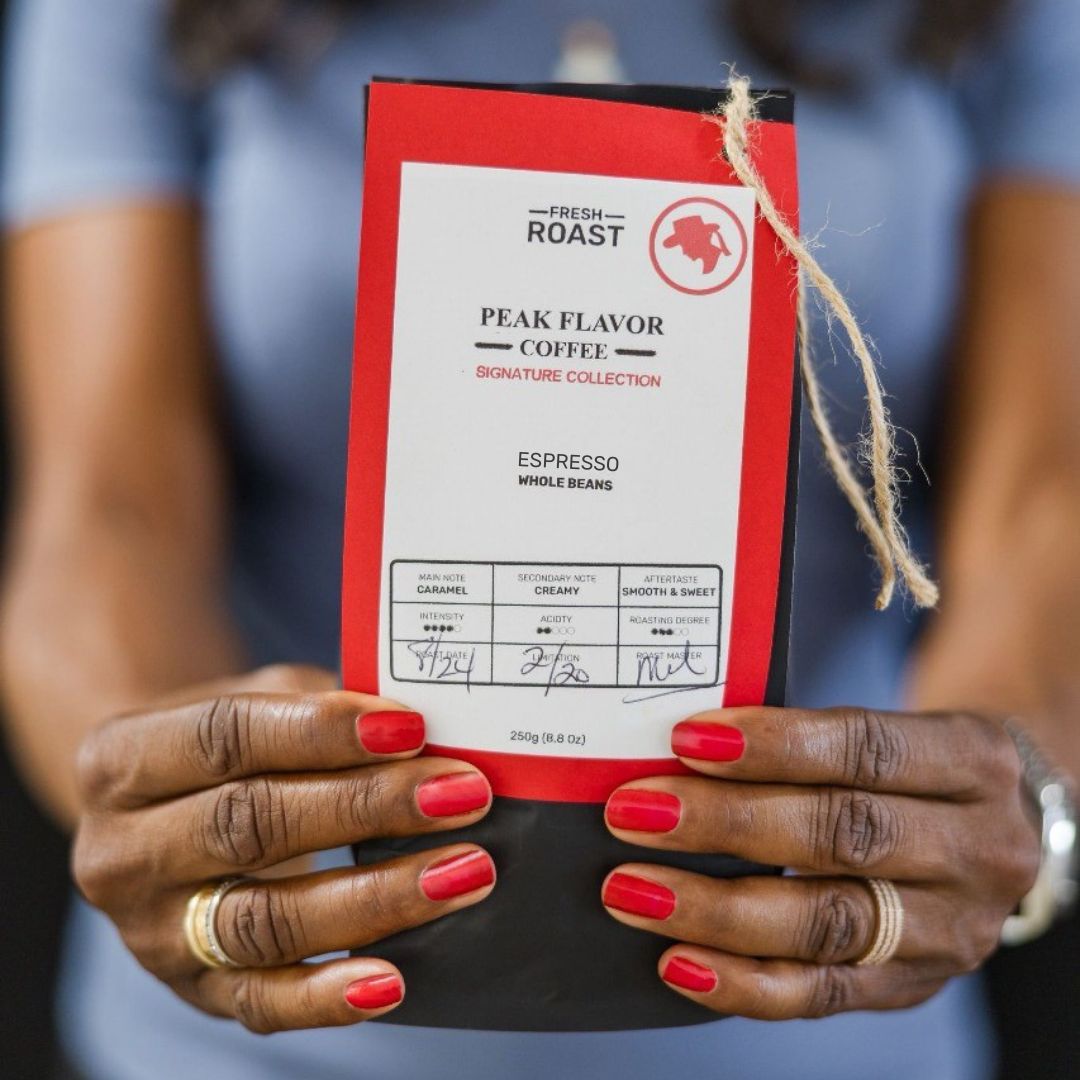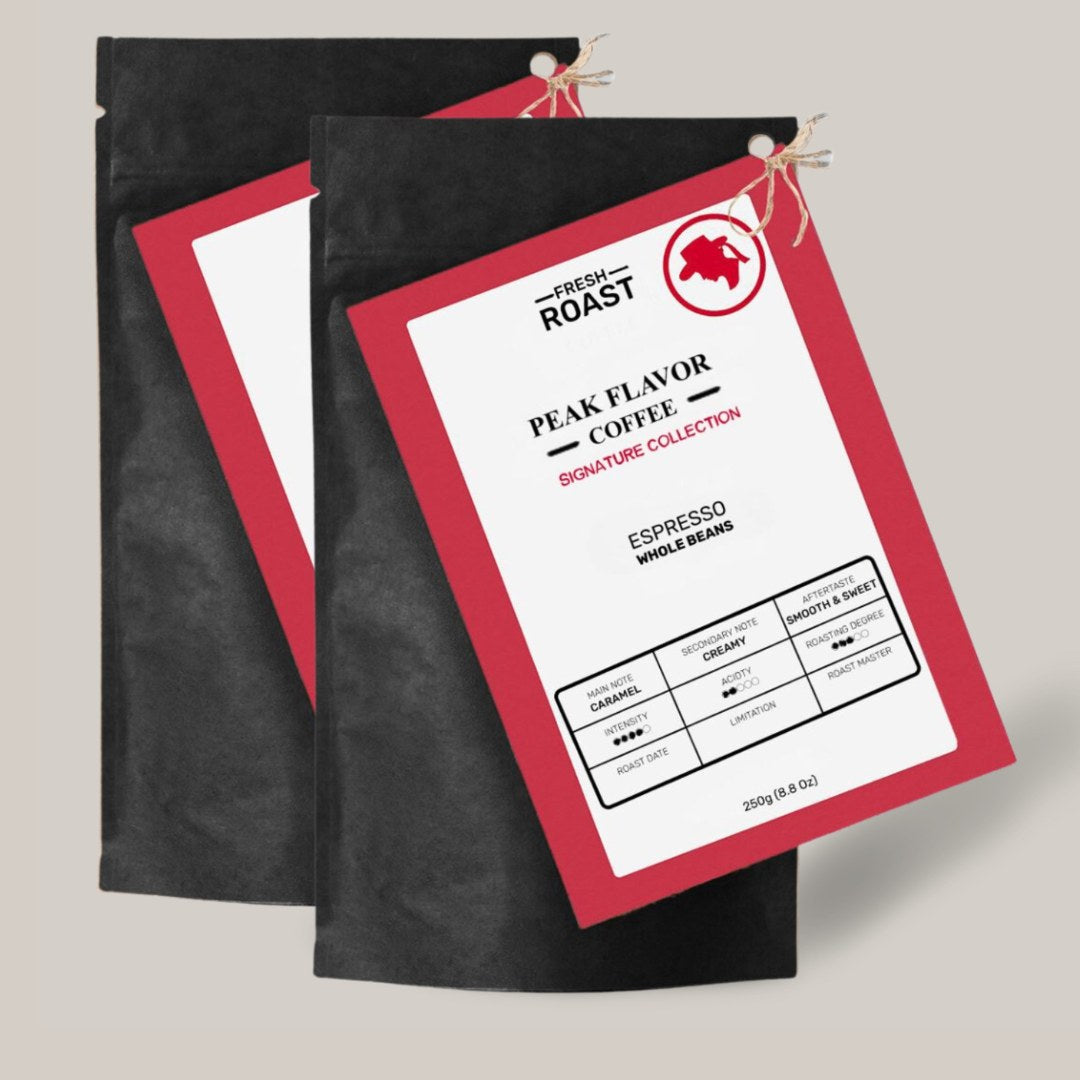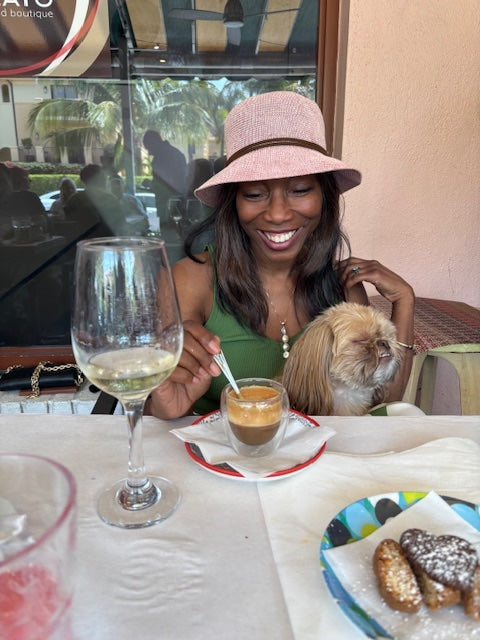What Is the Best Coffee for an Espresso Machine?
So you’ve invested in a fancy espresso machine. You’ve got steam, pressure, and more chrome than a spaceship—but what’s in your portafilter? If the answer is “whatever was on sale,” we need to talk. Because your espresso machine deserves better. Like Italian-coffeehouse-better.
Let’s get this straight: the best coffee for an espresso machine isn’t just “any coffee.” It’s the right beans, with the right roast, in the right grind. Dial this in correctly, and every cup you pull can transport you to a café in Rome—minus the Vespa traffic.
So what’s the secret sauce? Let’s break it down.
Espresso Machines Are...Special
(And They Know It)
Espresso machines don’t brew like your average drip pot. They blast hot water through tightly packed coffee grounds at 9 bars of pressure (that’s roughly 130 psi—strong enough to shoot coffee through a brick wall). In 25–30 seconds, they extract concentrated flavor, crema, and enough caffeinated goodness to jump-start a Monday morning.
This unique process needs coffee that’s up to the task. Not every bean can handle the heat—or the pressure. Not every grind size yields a good brew-in the case of espresso makers: grind size really matters. That’s why espresso-specific blends, roasts, and grinds exist: they’re crafted for the fast, intense brew your machine delivers. Learn more about the brewing method of espresso machines.
What Espresso Beans Do Italians Use?
Short answer: better coffee than you’re probably using.
Longer answer: Italians take espresso seriously. They tend to use medium-dark to dark roasted blends made from high-altitude Arabica beans, sometimes with a dash of Robusta for that extra crema and caffeine. They also slow roast their beans (like, actually slow—not “medium-rare, espresso-flavored charcoal”). In addition, their roasts are from small batches and never older than 8 days past the roast date (which you'll find on-pack in Italy).
If you want espresso that tastes like it came from a sidewalk café in Naples, follow their lead.
Best Beans for an Espresso Machine
Let’s talk bean types. The MVP here? Arabica—smooth, sweet, complex. It’s the bean that knows how to whisper “chocolate and honey” while making your taste buds swoon.
But sometimes, you’ll see a bit of Robusta in the mix. Why? Because Robusta is the life of the party. It boosts crema, adds body, and cranks the caffeine up to eleven. A blend of both = balance.
And for the love of espresso, skip the bargain bin beans. Grocery-store coffee often tastes like regret. Instead, look for high-altitude beans from places like Brazil or Honduras. These mature slower and develop richer flavor. Translation? Better espresso.
The Art of the Blend
Single-origin beans can be fun (kind of like dating someone “artsy” with a nose ring), but they’re not always reliable for espresso. That’s where blends shine. typical Italian espresso bean blends are sinple yet curated for balance—crema, body, acidity, sweetness. Most Italian coffee blends contain low acid varieties of naturally sweet beans, rich in natural coffee oils.
Natural coffee oils are essential for an espresso machine. These coffee oils contain all richest flavor compounds and are an essential building block for abundant crema, the visual clue that you have found the right coffee for your espresso machine.
The Right Roast
(Spoiler: It's Not "Jet Fuel")
Roast level is critical. The best espresso comes from medium-dark to dark roasts. Why? Because roasting caramelizes the sugars in the coffee beans, creating flavor notes like caramel, vanilla, and honey. Sounds delicious because it is.
Slow roasting is key here. Fast, high-temp roasting turns beans into little lumps of bitterness. If your coffee tastes like it was forged in a volcano, someone cut corners. Have a look at this graph illustrating that most of the best flavor components in your espresso beans reach a crescendo when the roast level is somewhere between medium and medium dark.

Grind Size: The Unsung Hero
Grind too coarse, and your espresso will taste like sad water. Grind too fine, and your machine will scream for mercy. The sweet spot? Extra fine—like powdered sugar. Now, here's where it gets even more precise:
- Espresso, Ristretto, Americano? Shoot for around 350 microns with 98% consistency to make sure your brew is not too bitter and adjusts automatically to the right intensity for espresso based coffee without milk.
- Cappuccino, Latte, Macchiato? Slightly finer at about 300 microns with 98% consistency. A little additional fineness is required to provide enough coffee intensity to balance out the milk which is part of the recipes for these delicious coffee drinks.
Also, consistency is everything. If your grounds are a mix of boulders and fairy dust, you’ll end up with bitter, unbalanced espresso. Consistency can be illustrated as in the graph below, whereby coffee grounds with 98% consistency reach top flavor. To reach this Peak, use a burr grinder for your espresso beans or go with high-quality pre-ground espresso like the kind you'll find in our collection of best Italian coffee.

Freshness: Coffee Has a Short Shelf Life
(Sad but True)
Roasted coffee is like bread—it’s best fresh. Look for roast dates, not expiration dates. Ideally, you want beans that were roasted within the last 2–4 weeks. Pro tip: store beans in an airtight container in a cool, dark spot. Your countertop next to the stove? Not it.
Have a look at below chart illustrating how flavor peaks on the eighth day after roasting before slowly deteriorating in the weeks after that climax.

The Right Coffee for Your Favorite Italian Coffee Drinks
Here’s the good stuff. What should you buy for your go-to espresso-based drink?
Espresso
Rich crema. Bold flavor. Maximum drama in a tiny cup. You want a blend with natural oils, a darker roast, and high-altitude Arabica beans. Naturally sweet espresso beans, roasted medium dark and ground to 350 microns will deliver: Rich Crema, More Caramel Taste, and More Italian Coffee Love. Find the right coffee for Italian espresso shots.
Cappuccino
Mild, Sweet, and Easy on the stomach — kind of like a warm hug. Look for a smoother, slightly milder espresso bean blends to balance the milk. If your cappuccino beans contain low acid beans, harvested at Peak Ripeness - when the coffee cherries are red instead of green, your chances of getting delicious cappuccino with ease increase dramatically. Find the right coffee for authentic Italian cappuccino.
Café Latte
You like your coffee with more milk and a silky finish. Go for beans that roast to bring out caramel and vanilla notes.
Caramel requires naturally sweet beans, rich in natural sugars such as fructose. Strictly high grown beans from coffee plantations at higher elevations are your best bet if you'd like to mimic Italian style cafe latte. The right coffee beans for cafe latte should make yours taste rich enough to make you consider skipping dessert.
Macchiato
Less Milk, More Attitude, More Flavor. Searching for the right coffee for Macchiato means choosing coffee beans that deliver bold flavor, lots of crema, and that hint of roasted sweetness.
Espresso beans rich in natural coffee oils are essential for Italian macchiato. Scientifically, lipids (oils) is where all the flavor hides until you extract it with your espresso machine. Great Italian Macchiato beans require less milk and royal flavor for Italian coffee lovers.
Ristretto
This one’s all about concentration. The same grind, but less water. You need a bean that’s naturally sweet, with big flavor packed into a smaller shot.
The grind size is essential. By grinding to 300 microns with 98% accuracy, your espresso machine will automatically brew an authentic Italian Ristretto. Find the right beans and grinds for authentic Italian ristretto.
Americano
You like things mellow, but with some edge. Americano-friendly beans are balanced—more flavor than drip, less punch than straight espresso. You’re basically getting a longer espresso, so you still want that rich crema. Get low acid beans with an abundance in natural sweetness and coffee oils for additional cream.
Brew two shots of espresso and extend with the same amount of water. With the right coffee, you'll be enjoying Americano coffee thats milder than espresso and richer than drip coffee. Sounds like a dream to me!
The Bottom Line
Great espresso isn’t magic—it’s just the right mix of science, beans, and a little Italian know-how. Whether you’re pulling a ristretto to fuel your existential thoughts or frothing milk like a barista on a mission, the right coffee beans make all the difference.
So next time you load up your espresso machine, skip the guesswork and go for the good stuff. Your taste buds—and your machine—deserve it.
Ready to upgrade your espresso game?
Check out our hand-picked selection of premium Italian coffee, roasted for espresso greatness: 👉 Shop Now. Because life’s too short for bad coffee—and too long to pretend you don’t care.
Italian coffee hugs,
Melicent

